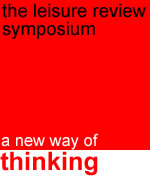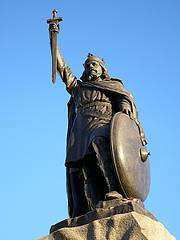
Creative, child-centred, commercially attuned and compassionate: is this the modern coach?
An eclectic mix of presenters and a lively audience made for a Coaching Insight in Winchester which crackled with ideas and debate. The Leisure Review reports.
For those whose only knowledge of the Hampshire countryside comes from the pages of Bernard Cornwell’s Saxon Stories series of novels, a drive south towards Witanceaster – as the novelist “authentically” calls Winchester – really does pass through gently rolling hills of the deepest green. These days Alfred the Great’s capital is little more than a middle-ranking county town but history has made it the site of a major cathedral, the home of various military entities and the headquarters of Sport Hampshire and Isle of Wight (SHIOW), which is one of the reasons why The Leisure Review’s latest Coaching Insight is located there.
In CJ Lee the county sports partnership (CSP) has one of the most dynamic and driven of the CSP network’s coaching development officers and his professional links to the county’s universities, local governing bodies, clubs and individual coaches were evident in the build-up to the seminar. Under the theme ‘Right coach, right place, right time: the coach as an agent of change’, this Coaching Insight session brought together presenters from all points of the coaching compass.
One of Lee’s key partners, the University of Winchester, not only provided a state-of-the-art venue on its King Alfred campus but also provided the first speaker, Richard Cheetham, a senior lecturer in sports coaching as well as an adventurer, motivational speaker and author. He is also one of the most self-deprecating of men with a CV of which many would boast. Cheetham, in contrast, focused his presentation on the nature of creativity and asked where it fitted in the coaches’ armoury.
The first thing he asked of the coaches in the room was that they all draw a watering can. He did not, he said, wish to see the pictures produced nor did he expect that anyone would share their efforts with the group. He then left what for many presenters would have been an uncomfortably long gap in which people were able to draw, alter and embellish whatever their version of a watering can might be. What was produced, as evidenced by a show of hands, was a range of pictures involving water spraying, flowers and even the odd window sill. Some were big, some were small; some shaded, some simple line drawings. In effect there were as many creations as there were people with a pen in their hand and a piece of paper. Cheetham’s question was: “When was the last time you allowed the people you coach the freedom to do what they want to do?”
There is plenty of research to show that coaches are high on organisation and low on freedom of expression and Cheetham’s thesis is that this due to a “fundamental lack of trust” at the heart of the coach/performer relationship. The American equivalent of the British Heart Foundation has a poster with the tag line “Caution: children not at play” and Cheetham equated society’s growing “failure to give kids the freedom to play, to take risks” with the coaching fraternity’s failure to allow performers to experiment, to play with concepts and to take responsibility for their own learning. He cited a player he has worked with, rugby wild child Danny Cipriani – “a proper genius” – who represented the coach’s dilemma. Cipriani’s approach is high-risk but it brings high rewards as he, and people like him, “create spontaneity, they imagine lines [of running]”.
Using YouTube clips, Cheetham showed Dennis Bergkamp and Brian O’Driscoll doing unlikely things and cited a basketball commentator who, having witnessed Kobe Bryant pull off a remarkable shot, says, “That’s just not fair.” Genius is possible but not in a world where we think we can coach agility. Agility is “reactive and unpredictable” and yet coaches lay down ladders and set up endless cones believing that they can deliver it by rote.
Cheetham did not ostensibly charge the coach education system with being implicated in this lack of imagination in the practice of coaches but the implication was there and, had the next speaker on the programme been available, the debate would have been fascinating. Unfortunately Nick Scott of the Rugby Football Union (RFU) had been unavoidably summoned to Manchester and it was left to seminar facilitator Mick Owen to deliver Scott’s presentation. Taking a creative approach, Owen sat in the audience and invited the coaches in the room to become “partners in a critical enquiry” of the latest in coach development from the beleaguered governing body.
Owen is an occasional coach educator for the RFU and the chair of Hampshire’s coaching committee was also in the room so, with Scott’s notes and an collective enquiring mind, the sense of what the RFU are trying to achieve was clear. Following the argument expounded by Canadian academic Jean Cote that children are better served by being encouraged to “sample” many physical activities when young rather than being expected to “specialise”, Scott and his colleagues are moving away from long-term athlete development models and revisiting not only their Level 1 coach education offer but also their whole framework for coaching development. Their long-term aim is to identify the knowledge, skills, behaviours and competencies required by, or exhibited by, coaches in each of five levels of expertise, from beginner coach to master coach, across six environments, from young children to elite adults. Sometimes a diagram is worth a thousand words and the appropriate one in Scott’s presentation caused debate, dissent and one unanswerable question. Having praised and pulled apart some of the assumptions of the model, one delegate challenged the assumptions that allowed for Level 5 coaches to be “described” in every environment except young children. Did this mean, he asked, that the RFU see no need for young children to have a well-qualified coach? Scott’s answer, secured post-seminar, is simply that those coaches “will have chance to get there, it’s just we haven’t got there yet! We are identifying the contents of that box currently.”
Significantly Andy Heald from commercial coaching suppliers Premier Sport asked that Scott’s presentation be left on the overhead as he began his presentation because his company’s coach development starts where traditional national governing bodies stop. Heald spent time putting himself and his company in context, taking pains to distance the operation from the type of deliverer he called “little more than a man with a bag of balls”. Premier’s coaches, he explained, have to have an NGB Level 2 qualification to get on the shortlist for insurance purposes but are recruited on personality. Before being deployed they are given training in how children learn and in behaviour management and have to be observed – on a voluntary basis – for a minimum of 18 hours coaching.
Heald’s case is simply that coaches need to be fit for purpose and that working in education settings does not require “the unnecessary levels of sport-related knowledge” that coaches trained by governing bodies of sport seem to value. “Kids need fun-based, creative sessions which enable each child to learn” and he echoed Scott’s presentation in referencing Jean Cote’s argument for sampling not specialisation.
The future for commercial coaching providers seems positive with growing demand fuelled by the credibility that quality delivery generates, a trade association called COMPASS that is speaking to all the right people and the prospect of qualifications specific to the context on the horizon. In a curious twist Premier Sport is increasingly working with NGBs and, for example, and there are now more fencing coaches in schools because of the company’s involvement.
If Heald focussed on the systemic power of quality coaching the final speaker, Dr Oscar Mwaanga of Southampton Solent University, looked at the power of individual coaches and both inspired and challenged his audience. His presentation asked whether coaching was about sport skills or about life skills and reflected Mwaanga’s experience of the redemptive power of sport. “Born a coach” in Zambia and brought up by a mother “with a metaphor for every situation”, Mwaanga, like Heald, asked the question: “What is the role of sport?” By asking the audience to share with each other their own experience of when their actions as a coach changed a person’s life he was able to examine the whole arena of life skills.
For young people, Mwaanga’s focus, life skills are defined as “the skills that help us succeed in the different environments in which we live – school, home, work place, neighborhood – and they can be behavioural (communicating effectively with peers and adults), cognitive (making effective decisions), interpersonal (being assertive), or intrapersonal (setting and managing goals).
Asked to identify the sorts of skills in question, the audience listed decision-making, problem-solving, goal-setting and various skills within the catch-all of communication. Given that these are developed by good sports coaches, the potential impact of those coaches on young people’s lives is obvious. Mwaanga quoted Roe and Thorogood who wrote “providing information has a place but… evidence clearly shows that giving knowledge alone does not necessarily lead to a change in behaviour”. In Mwaanga’s world – where 200 young people are dying of HIV/Aids every day – the “bad habits” which need to be changed are fatal and sports coaches have a responsibility, not just an opportunity, to integrate life skills into sport coaching.
Whether Mwaanga’s presentation caused any of the coaches, coach educators, coach managers and academics in that Winchester lecture theatre to change their behaviour must remain an unknown but the conversation had been started and the aim of his presentation and indeed of the Coaching Insights programme had been achieved.
The Leisure Review, December/January 2011/12
© Copyright of all material on this site is retained by The Leisure Review or the individual contributors where stated. Contact The Leisure Review for details.
Download a pdf version of this article for printing
